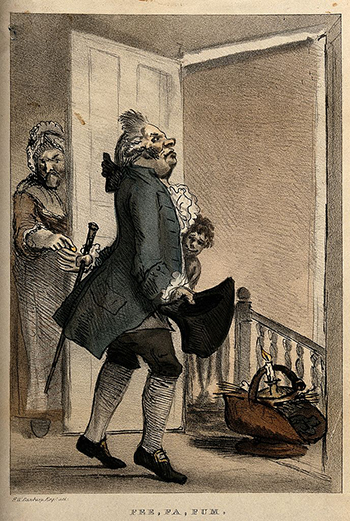Following recommendations by the Medicare Benefits Schedule (MBS) Review Taskforce the federal government is moving to reduce expenditure on often-notionally urgent after-hours home visits by doctors, which increased by 157 per cent between 2010–11 and 2016–17.
Announcing the changes, Health Minister Greg Hunt said, “There is no clinical explanation for the large increase, but rather the growth has been driven by a corporate model of largely advertising on the basis of convenience, rather than medical need.”
The changes are in response to concerns raised by GPs that some doctors who are not GPs are providing urgent after-hours care, and that some treatments being claimed as urgent are not genuinely urgent.
The minister explained that the Taskforce found access to urgent after-hours care should be used “only when necessary and that funding should be appropriate to the level of care being provided.”
The amended after-hours arrangements will mean doctors are able to provide the best care to their patients, and that after-hours services are provided by an appropriate doctor to people who require genuinely urgent treatment, the minister said.
The Medicare rebate will be adjusted to better reflect the qualifications of the doctor providing the urgent after-hours care to patients. All savings will be reinvested into Medicare.
Services provided in rural and remote areas will not change, in recognition of the difficulty Australians in these areas can face in accessing after-hours care. GPs and doctors in regional and rural areas will receive a higher rebate. Non GPs will have their rebate adjusted in stages over coming years.
All GP services that operate after-hours will continue to be able to treat patients under Medicare using any of the 24 standard after-hours items. The Government will also maintain current rebates for all doctors providing services between 11.00pm and 7.00am.
RACGP President Dr Bastian Seidel said, “The changes are pragmatic, evidence-based and they do incorporate the substantive feedback from the medical profession and patients.
The Medicare rebate will be adjusted to better reflect the qualifications of the doctor providing the urgent after-hours care to patients.
“The changes to the Medicare rebates provide certainty to the after-hours sector in metropolitan as well as rural communities. We commend Minister Hunt for listening to the concerns of the RACGP and for implementing evidence based adjustments to after-hours Medicare rebates.”
“The gold standard for after-hours care is a consultation with a specialist GP. The proposed changes to the Medicare rebates make that very clear. This can only be in the best interest of patients,” Dr Seidel said.
The changes include limitations on “inappropriate advertising”, with the practice of pre-booking urgent consultations before the after-hours period no longer being permitted.
AMA President, Dr Michael Gannon, said the Government’s much-needed reforms to after-hours primary care should ensure that after-hours GP services are better targeted towards patients with genuine clinical need: “Poor models of after-hours GP care can fragment patient care, result in poorer outcomes for patients, and burden the health system with additional costs… the reforms announced today should help address these problems.”
Link to Australian Government document - Improving quality in after hours GP services
Link to Australian Government document -taskforce recommendations
AMA’s pre-Budget submission
In mid-December 2017 Dr Gannon released the AMA’s Pre-Budget Submission 2018-19 that urged the Government “to look at all health policies as investments in a healthier and more productive population.”
Dr Gannon said, “The conditions are ripe for a new round of significant and meaningful health reform, underpinned by secure, stable, and sufficient long-term funding to ensure the best possible health outcomes for the Australian population.”
Adding that, “The Medicare freeze will be lifted gradually over the next few years,” he said, “The next Budget provides the Government with the perfect opportunity to reveal its health reform vision, and articulate clearly how it will be funded…
“The review of the MBS is an ambitious project. Its methods and outcomes are becoming clearer. Its best chance of success is if the changes are evidence-based and clinician-led and approved.
“A new direction for private health insurance (PHI) has been determined following the PHI Review. We must maintain flexibility and put patients at the centre of the system, but recognise the fundamental importance of the private system to universal health care.”
Image Wellcome Library, London CC BY 4.0 :
A doctor exacting payment for a house-call from a disgruntled patient. Lithograph by H.W. Bunbury.





